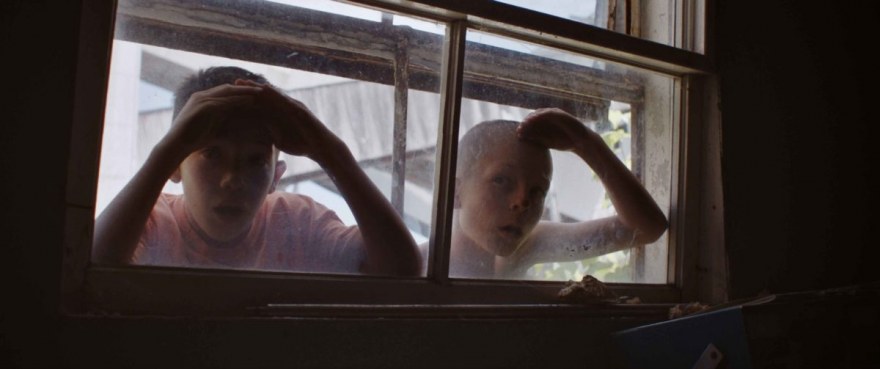Breakfast with Fauve
Interview with Jérémy Comte, director of Fauve
Why did you want to highlight the wanderings of these two aimless children?
I grew up in the Quebec countryside, so for me, it’s a world that I know quite well. At that age, I spent my time exploring the woods with my best friend and we were constantly playing pranks on each other.
Why did you decide for the children to speak with vulgar language? Do you have a particular interest in marginal characters?
I dove into research on child psychology and I often observed the dynamics between boys (Félix et Alexandre). I wanted to keep it as authentic as possible. I think that most pre-teens use coarse language when they find themselves alone. It demonstrates the strong influence of adults on their immediate environment.
How did you find the setting and how did you work with the lighting?
I searched on Google Maps in satellite mode and I made a list of construction sites that we then visited one by one. The place we decided to shoot at was last on the list, and I jumped with joy when we found it. It was absolutely perfect for the story. Olivier Gossot, the photography director, worked the natural lighting with finesse, working mostly with reflectors and diffusers.
What interested you in the idea of confrontation? And which confrontation is the driving force of the film: the confrontation between the kids, with the objects they find on their path, with Nature, or with the feeling of powerlessness… or in all those forms?
In all its forms! But ultimately, I believe everything revolves around nature, around the universal theme of Man versus Nature. The confrontation between the boys is impulsive and I might say almost primitive. I think we tend to forget that a human being is part of the animal chain, and that can be seen even more clearly during childhood. This is why nature has such an important role in the film, in all its shapes.
Are there particular freedoms that the short film format allows you?
The short film is the opportunity to tell a story without having to develop the characters too much, allowing us to focus on an important situation.









